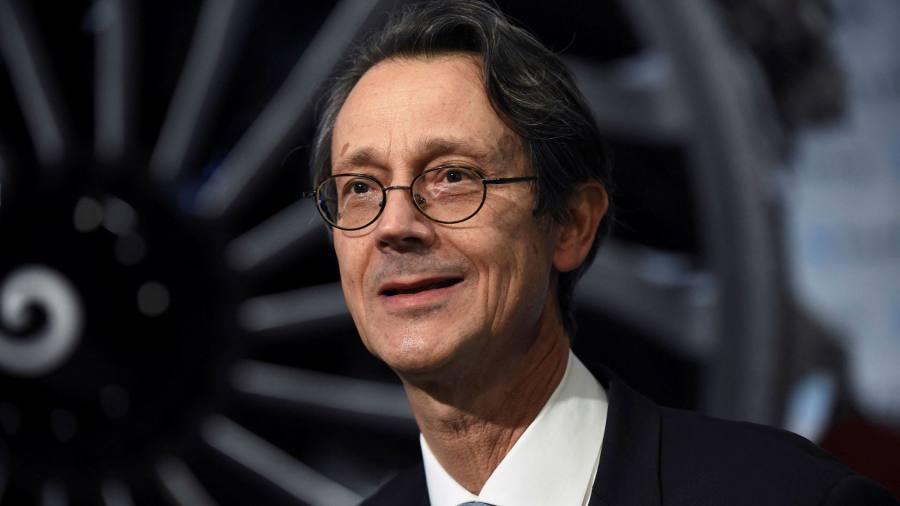[ad_1]
The newly installed boss of French aerospace group Safran has urged funds for a future-generation fighter to be unblocked in the coming months as Franco-German tensions risk throwing plans off course.
“By this summer we need to have a contract that will cover the years between now and 2024, 2025, to mature the technologies on the aircraft side and the engine side. This is what is at stake,†Olivier Andriès, Safran chief executive, told the Financial Times in an interview.
Andriès made the comments as billions of euros destined to fund the next stage of development for Europe’s Future Combat Air System (FCAS) are at risk of being blocked amid disagreements between Paris and Berlin over intellectual property and allocation of work.
Guillaume Faury, chief executive of Airbus, earlier this month admitted that discussions were at “the most difficult†stage. Airbus, which has its defence arm based in Germany, and France’s Dassault Aviation are lead industrial partners on the project, along with Safran, and the Spanish division of Airbus, where the military air transport unit is based.
The project has been plagued with Franco-German tensions since it was launched in 2017, to the surprise of the UK, which had expected to take a leading role in any future European fighter.
However, Britain, fresh from the Brexit vote, was excluded and has since launched a future fighter programme with Italy and Sweden, known as Tempest. The two programmes are now racing to develop a combat aircraft by the 2030s, as the first to market will have an export advantage.Â
Safran’s chief said politicians now had to sign off the next outlay of funding or risk delays. Test flights are due to start in 2026.
The partners “need to start the development of the aircraft and the engine by 2030 . . . and in order to be on time for that, you need to mature the technologies between now and 2025 . . . to make sure that once you push a button and you launch a development, you are well preparedâ€, said Andriès.Â
Francis Tusa, consultant and editor of Defence Analysis, said tensions appeared to have worsened since a Franco-German summit ended without agreement in early February. “Two years ago I would have said they will pull together. But there are such fundamental differences between Germany and France that there is a high chance of failure. I cannot see what the compromise position is.â€
However, Andriès said he remains “confident it will be resolved . . . And that reason will prevail.â€
Andriès, 58, joined Safran in 2008 and took over in January from the long-serving Philippe Petitcolin, telling employees that European defence projects would be one of his priorities, alongside improving the group’s green credentials and pushing its digital strategy.
However, he rejected suggestions that Europe should push for an “Airbus of enginesâ€, arguing the current set-up can deliver while leaving companies free to pursue partnerships.Â
Safran produces its Leap engine with General Electric of the US in a 50:50 joint venture, CFM International, which runs to 2040. It is committed to delivering another 800 Leaps in 2021 while planning a next-generation engine that will reduce fuel burn by at least 20 per cent.Â
His comments came as Safran reported a recurring operating income of €1.7bn in 2020, down 56 per cent over the year before, while revenues fell 33 per cent to €16.5bn. Operating margin fell to 10.2 per cent, from 15.5 per cent, but Safran expects it to increase by above 100 basis points next year.
Safran has been cutting costs to try to limit the fallout from Covid-19 — more than €2bn in cuts include a 20 per cent reduction in staff costs and four plants closures, one in the UK and three in the US.
France has put billions on the table to support its aerospace industry through the pandemic and Andriès said that so far there had not been the feared spate of failures expected in the complicated supply chain. The sector employs 300,000 people in France either directly or indirectly and brings in €58bn in revenues every year.Â
Andriès does not see a full recovery for Safran until 2024, with his aircraft interiors business particularly badly hit. That unit was built up with the €8.5bn acquisition of Zodiac Aerospace in 2017 and is weighted more to longer distance and business travel.
[ad_2]
Source link





